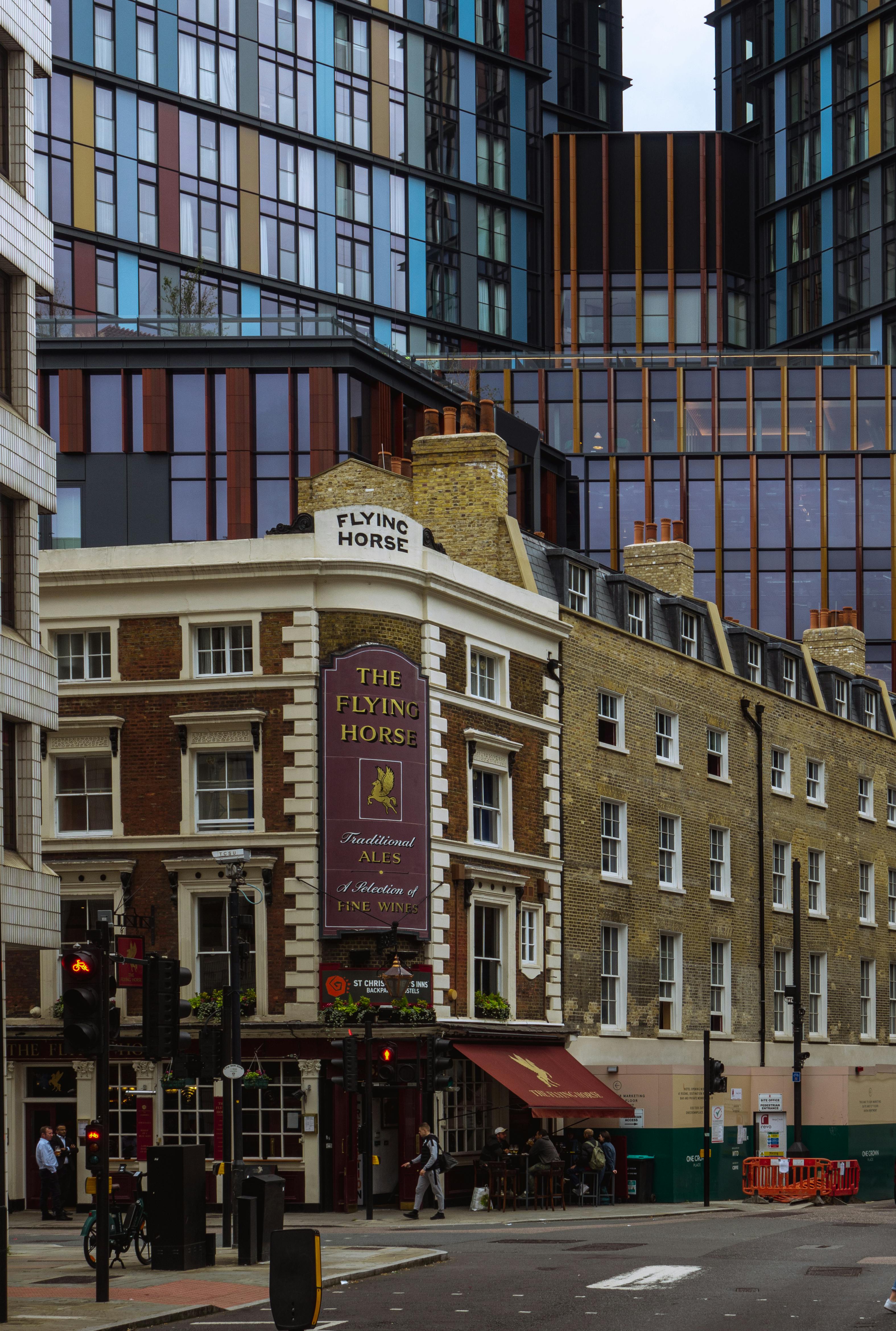
The Best Cities for Student Jobs in the UK in 2024
Finding the right balance between academic commitments and part-time work can be challenging for students. However, working while studying offers numerous benefits, including financial independence, professional experience, and the development of crucial soft skills. The UK boasts several cities that provide excellent opportunities for student jobs, each with its unique advantages. This article explores the best cities for student jobs in the UK for student jobs, offering insights into job markets, average pay rates, and the quality of student life.
Table of Contents
For international students in the UK, finding suitable part-time or student jobs is crucial for financial stability and gaining valuable work experience. Utilizing job boards like Indeed and LinkedIn is essential in this process. These platforms offer extensive job listings, allowing students to explore a wide range of opportunities tailored to their skills and preferences. Indeed provides access to numerous job postings and company reviews, while LinkedIn not only lists job openings but also helps build professional networks and connect with potential employers. Leveraging these tools effectively can significantly enhance job search outcomes and help international students successfully balance their studies with work. Below are some of the best cities for international students considering moving to the UK in 22024.
1. London: The Capital of Opportunities
Diverse Job Market
London, the UK’s capital, offers an unparalleled diversity of job opportunities for students. The city is home to numerous industries, from finance and technology to retail and hospitality. This diversity means students can find part-time work related to their field of study or explore new areas of interest.
Higher Wages
Although the cost of living in London is higher than in other UK cities, the wages tend to be higher as well. Part-time roles in retail, hospitality, and administrative positions often offer competitive hourly rates. Moreover, internships and placements in prestigious firms can provide valuable experience and generous compensation.
Networking Opportunities
London is a global hub, providing students with numerous networking opportunities. Attending industry events, joining professional societies, and participating in university career services can lead to valuable connections and potential job opportunities after graduation.

2. Manchester: A Thriving Student Hub
Vibrant Job Market
Manchester is known for its vibrant job market, especially in sectors like media, technology, and healthcare. The city’s strong student population means there is a high demand for part-time workers in retail, hospitality, and customer service roles.
Affordable Living Costs
Compared to London, Manchester offers a more affordable cost of living. This balance of reasonable living expenses and ample job opportunities makes it an attractive destination for students looking to work part-time.
Supportive University Environment
Manchester’s universities, including the University of Manchester and Manchester Metropolitan University, offer robust support for students seeking employment. Career services, job fairs, and internship programs are readily available, helping students to secure part-time positions and build their careers.

3. Birmingham: The Heart of the Midlands
Expanding Job Opportunities
Birmingham, the UK’s second-largest city, is experiencing significant economic growth. This expansion translates into numerous job opportunities for students in various sectors, including retail, finance, and manufacturing. The city’s diverse economy means students can find part-time roles that suit their skills and interests.
Central Location
Birmingham’s central location makes it an accessible and attractive city for students from all over the UK. Its excellent transport links mean students can easily commute to part-time jobs, and the city’s vibrant cultural scene offers plenty of entertainment and leisure activities.
Strong University Support
Birmingham’s universities, such as the University of Birmingham and Aston University, provide excellent career support services. Students can access job listings, career counseling, and workshops to help them secure part-time employment and develop their professional skills.

4. Edinburgh: The Cultural Capital
Diverse Employment Opportunities
Edinburgh, Scotland’s capital, is a city rich in history and culture. It offers a variety of part-time job opportunities, particularly in tourism, hospitality, and retail. The city’s numerous festivals and events create additional temporary job opportunities for students.
High Quality of Life
Edinburgh is known for its high quality of life, with stunning architecture, beautiful parks, and a rich cultural scene. Although the cost of living can be high, students often find the balance between work and leisure to be rewarding.
Strong Academic Environment
Edinburgh’s universities, including the University of Edinburgh and Edinburgh Napier University, are highly regarded. These institutions offer comprehensive career services, helping students to find part-time work that complements their studies and enhances their employability.

5. Leeds: A Student-Friendly City
Growing Job Market
Leeds is one of the UK’s fastest-growing cities, with a thriving job market that offers numerous part-time opportunities for students. Key sectors include finance, retail, and healthcare. The city’s growing economy means students can find a variety of roles to suit their needs and interests.
Affordable Living
Leeds is known for its affordable living costs compared to other major UK cities. This affordability, combined with a high availability of part-time jobs, makes it an attractive destination for students seeking to balance work and study.
Vibrant Student Life
Leeds boasts a vibrant student life, with numerous social activities, clubs, and events. The city’s universities, such as the University of Leeds and Leeds Beckett University, provide excellent support for students seeking employment, including job fairs, career services, and internship programs.

6. Glasgow: Scotland’s Largest City
Dynamic Job Market
Glasgow offers a dynamic job market with opportunities in various sectors, including retail, hospitality, and the creative industries. The city’s size and economic diversity mean students can find part-time jobs that fit their schedules and career goals.
Friendly Community
Glasgow is known for its friendly and welcoming community, making it an attractive place for students. The city’s vibrant cultural scene, including music, art, and festivals, provides numerous leisure opportunities outside of work and study.
Strong University Support
Glasgow’s universities, such as the University of Glasgow and Glasgow Caledonian University, offer strong support for students seeking part-time employment. Career services, job listings, and networking events help students to find suitable roles and build their professional networks.

7. Bristol: A Creative Hub
Booming Job Market
Bristol is a creative and innovative city with a booming job market. Key industries include technology, media, and aerospace, providing a range of part-time opportunities for students. The city’s vibrant economy means there are always new opportunities to explore.
High Quality of Life
Bristol is known for its high quality of life, with a mix of urban excitement and natural beauty. The city’s parks, waterfront, and cultural attractions provide a pleasant environment for students balancing work and study.
Strong Academic Institutions
Bristol’s universities, such as the University of Bristol and the University of the West of England, offer excellent support for students seeking employment. Career services, job fairs, and internship programs are readily available, helping students to gain valuable experience and secure part-time jobs.

8. Sheffield: The Steel City
Robust Job Market
Sheffield, known historically for its steel industry, now boasts a diverse economy with opportunities in healthcare, retail, and education. The city’s robust job market provides numerous part-time roles for students, allowing them to gain experience and earn money while studying.
Affordable Living Costs
Sheffield offers some of the most affordable living costs among major UK cities. This affordability, combined with a strong job market, makes it an attractive destination for students looking to work part-time.
Strong University Support
Sheffield’s universities, including the University of Sheffield and Sheffield Hallam University, provide strong support for students seeking part-time employment. Career services, job listings, and workshops help students to find suitable roles and build their professional skills.

9. Nottingham: A Historical City with Modern Opportunities
Growing Job Market
Nottingham is a city with a rich history and a growing job market. Key sectors include retail, healthcare, and technology, offering a range of part-time opportunities for students. The city’s expanding economy means there are always new roles to explore.
Affordable Living
Nottingham is known for its affordable living costs, making it an attractive destination for students. This affordability, combined with ample job opportunities, helps students to balance work and study effectively.
Vibrant Student Life
Nottingham’s universities, such as the University of Nottingham and Nottingham Trent University, provide excellent support for students seeking employment. Career services, job fairs, and internship programs are readily available, helping students to gain experience and secure part-time jobs.

10. Liverpool: The Maritime City
Diverse Job Market
Liverpool, with its rich maritime history, offers a diverse job market. Key industries include retail, hospitality, and tourism, providing numerous part-time opportunities for students. The city’s vibrant economy means students can find roles that fit their schedules and career goals.
Affordable Living Costs
Liverpool is known for its affordable living costs compared to other major UK cities. This affordability, combined with a high availability of part-time jobs, makes it an attractive destination for students seeking to balance work and study.
Strong University Support
Liverpool’s universities, including the University of Liverpool and Liverpool John Moores University, offer strong support for students seeking part-time employment. Career services, job listings, and networking events help students to find suitable roles and build their professional networks.

Frequently Asked Questions.
Which city is best for study and work in the UK?
When considering the best city for study and work in the UK, London stands out due to its prestigious universities like Imperial College London and University College London, combined with a thriving job market. London offers unparalleled cultural experiences and networking opportunities in diverse industries. Additionally, cities like Manchester and Edinburgh are also excellent choices. Manchester boasts a vibrant student community, renowned universities such as the University of Manchester, and a strong economic landscape. Edinburgh, home to the University of Edinburgh, offers a rich cultural heritage and robust job prospects, particularly in finance, technology, and creative sectors. Each city provides unique advantages tailored to varying academic and professional aspirations. Below is a more comprehensive list of top destinations for students in 2024.
- London
- Manchester
- Edinburgh
- Birmingham
- Glasgow
- Bristol
- Leeds
- Cambridge
- Oxford
- Newcastle
Which city has the most job opportunities in the UK?
London offers the most job opportunities in the UK, boasting a dynamic and diverse economy. As the financial hub of the country, it hosts major banks, financial institutions, and multinational corporations. Additionally, London is a leading center for technology, creative industries, healthcare, and education, providing a wide range of employment options. The city’s extensive transportation network and global connections further enhance its attractiveness for job seekers. With its vibrant cultural scene, numerous networking opportunities, and high concentration of top-tier companies, London remains the prime destination for professionals seeking career growth and development in the UK.
Which part of the UK is best for students?
The best part of the UK for students depends on individual preferences, but London is often considered the top choice due to its world-renowned universities such as Imperial College London, University College London, and the London School of Economics. The city offers a rich cultural scene, diverse social opportunities, and a vast array of resources and facilities. Other notable regions include Scotland, with Edinburgh and Glasgow offering prestigious institutions like the University of Edinburgh and the University of Glasgow, coupled with vibrant student communities and rich historical heritage. Additionally, cities like Manchester, Birmingham, and Oxford provide excellent academic environments and thriving student life.
Which job is best for students in the UK?
The best job for students in the UK balances flexibility with skill development and includes roles like retail assistant, hospitality staff, and administrative assistant. These positions offer adaptable hours that accommodate academic schedules. Retail and hospitality jobs, such as barista or waiter, hone customer service and communication skills, while administrative roles in university departments or local businesses provide valuable office experience. Tutoring or research assistant positions are also excellent choices, aligning closely with academic pursuits and enhancing subject knowledge. Ultimately, the best job for a student depends on individual career goals and the need to manage study commitments effectively.
Which city is best for earning in the UK?
London is the best city for earning in the UK due to its robust and diverse economy. As the financial capital, it hosts leading banks, financial institutions, and multinational corporations, offering high-paying roles in finance, law, consulting, and technology. The city’s extensive network of startups and established tech firms also provides lucrative opportunities in the tech sector. Additionally, London attracts top talent in creative industries, healthcare, and education, further boosting earning potential. Despite a higher cost of living, the wealth of high-salary job prospects and career advancement opportunities make London the premier destination for maximizing earning potential in the UK.

What is the easiest job to find in the UK?
The easiest jobs to find in the UK are typically in the retail and hospitality sectors. Positions such as retail assistants, baristas, waitstaff, and kitchen staff are in constant demand due to high turnover rates and the need for flexible, entry-level employees. These roles require minimal prior experience, making them accessible to a wide range of job seekers, including students and part-time workers. Additionally, customer service roles, both in-person and remote, are readily available, with many companies seeking employees to manage customer inquiries and support. These positions offer valuable work experience and can often serve as a stepping stone to more advanced career opportunities.
Which UK city has the lowest employment rate?
In the first quarter of 2024, the highest unemployment rate in the United Kingdom was recorded in England and Scotland at 4.4 percent. This was followed by Wales with a rate of 3.3 percent, while Northern Ireland had the lowest rate at 2.6 percent among the four UK countries.
As of recent statistics, Blackpool is known to have one of the lowest employment rates in the UK. This coastal city, despite its rich history and attractions, faces economic challenges that impact job availability. The decline of traditional industries and seasonal fluctuations in tourism contribute to a higher unemployment rate compared to other regions. Efforts are being made to revitalize the local economy through initiatives aimed at attracting new businesses and investment. However, job seekers in Blackpool may find limited opportunities, particularly in higher-skilled positions, making it a less favorable location for employment compared to other UK cities.
Which city in the UK has more IT jobs?
London and Manchester are the UK cities with the most IT jobs. London stands out as a global tech hub, hosting numerous technology companies and offering a wide range of opportunities in software development, cybersecurity, and data analysis. Its extensive infrastructure, networking events, and investment in technology drive its prominence. Manchester, meanwhile, has a growing tech sector with a strong focus on digital innovation and IT services. The city’s expanding tech ecosystem is supported by local initiatives and investments aimed at fostering tech talent and startups. Both cities provide ample career prospects for IT professionals seeking growth and development.
What is the safest city in the UK?
As of recent data, cities such as Bristol and Edinburgh are often cited as among the safest in the UK. Bristol benefits from a strong community focus and relatively low crime rates compared to other major cities. Edinburgh, the capital of Scotland, is renowned for its low crime statistics and high quality of life, contributing to its reputation as a safe city. Both cities offer a strong sense of security due to effective local policing and community initiatives. However, for the most accurate and up-to-date information on safety, it is advisable to consult local police agencies or official crime statistics. We are not security or law enforcement experts.

Which UK city has the most international students?
London is the UK city with the most international students. Home to prestigious institutions such as University College London, Imperial College London, and the London School of Economics, it attracts a diverse global student population. The city’s extensive academic offerings, coupled with its vibrant cultural scene and international connectivity, make it a top destination for students from around the world. Additionally, London’s extensive support services and networking opportunities enhance the experience for international students, making it a hub for global education. For specific figures and trends, referring to university enrollment data and government reports can provide further insights.
Which city in the UK has more job opportunities for international students?
London offers the most job opportunities for international students in the UK. As a global financial center, it boasts a robust job market spanning finance, technology, creative industries, healthcare, and education. The city’s diverse economy and numerous multinational corporations create a wealth of internship and part-time employment opportunities tailored to students. London’s universities also have strong industry links, enhancing job prospects through placements and networking events. Moreover, the city’s multicultural environment provides a supportive community for international students. For specific job opportunities and visa regulations, it is advisable to consult university career services and official government resources.
Which city is the cheapest for students in the UK?
Cardiff is often considered one of the cheapest cities for students in the UK. As the capital of Wales, Cardiff offers a lower cost of living compared to major cities like London or Edinburgh. Accommodation, transportation, and daily expenses are relatively affordable, making it an attractive option for budget-conscious students. The city is home to reputable institutions such as Cardiff University and Cardiff Metropolitan University, which provide quality education and various student support services. Additionally, Cardiff boasts a vibrant cultural scene, numerous green spaces, and a welcoming community, enhancing the overall student experience without the high costs associated with other UK cities.
Where in the UK is best for international students?
London is considered the best city in the UK for international students. It offers unparalleled academic opportunities, a diverse and multicultural environment, and numerous cultural, social, and professional opportunities. The city’s extensive public transportation network and global connectivity make it easily accessible. London’s vibrant cultural scene, including museums, theaters, and various events, ensures international students feel welcomed and supported. For a comprehensive experience that blends top-tier education with vibrant city life, London stands out as the premier destination for international students in the UK.
Which visa is best for students in the UK?
The Tier 4 (General) Student Visa, now referred to as the Student Visa, is the best option for students in the UK. This visa allows international students to study at accredited institutions, provided they have a Confirmation of Acceptance for Studies (CAS) from their chosen university. It permits part-time work during term and full-time during holidays, offering financial support and practical experience. The Student Visa also includes provisions for extending the stay for further studies or switching to a work visa post-graduation. For the most accurate and up-to-date information, it is advisable to consult the UK government’s official immigration website.
What is the highest-paying part-time job in the UK?
Listed below are the highest Paying Part-Time Jobs for International Students in the UK
| Job Title | Description | Average Hourly Rate | Skills Required |
|---|---|---|---|
| Research Assistant | Support academic or professional research projects at universities. | £12 – £20 | Research skills, analytical abilities |
| Laboratory Technician | Maintain lab equipment and assist in conducting experiments. | £12 – £18 | Scientific knowledge, technical skills |
| Administrative Assistant | Perform office tasks such as data entry, scheduling, and customer service. | £10 – £15 | Organizational skills, communication |
| Private Tutor | Provide one-on-one teaching in specialized subjects like math or languages. | £15 – £25 | Subject expertise, teaching abilities |
| Barista | Prepare and serve coffee and other beverages in cafes. | £10 – £15 | Customer service, basic barista skills |
| Customer Care Representative | Handle customer inquiries and resolve issues via phone or online platforms. | £11 – £16 | Communication, problem-solving skills |
| Prep Cook | Assist in food preparation and kitchen operations in restaurants. | £10 – £14 | Food handling, kitchen skills |
| Dishwasher | Clean dishes and kitchen equipment in a fast-paced environment. | £9 – £12 | Basic cleaning, ability to work quickly |
| Receptionist | Manage front desk operations, including greeting guests and handling bookings. | £11 – £16 | Organizational skills, customer service |
| Health Care Assistant (HCA) | Provide support and care to patients in healthcare settings. | £12 – £18 | Patient care, empathy, healthcare knowledge |
| Retail Assistant | Assist with sales, stock management, and customer service in retail stores. | £10 – £14 | Customer service, sales skills |
These roles offer competitive pay and flexible hours, suitable for international students adhering to visa regulations. International students are prohibited from starting a business or being self employed.

Which field is best in the UK for international students?
The best field in the UK for international students often depends on individual interests and career goals. However, sectors such as Engineering, Computer Science, and Business are highly recommended due to their robust job markets and high earning potential. Engineering and Computer Science benefit from the UK’s strong tech industry and numerous innovation hubs, while Business degrees offer diverse opportunities in finance, marketing, and management. Additionally, fields like Healthcare and Life Sciences provide opportunities in research and clinical roles. These disciplines are supported by prestigious universities and offer extensive networking and career development resources, making them ideal for international students.
Is Glasgow cheaper than London?
Yes, Glasgow is generally cheaper than London. The cost of living in Glasgow, including accommodation, transportation, and daily expenses, is significantly lower compared to London. Rent prices in Glasgow are notably more affordable, and everyday costs such as dining out and public transportation are also less expensive. London, as the capital, has a higher cost of living due to its status as a global financial and cultural hub. While Glasgow offers a vibrant cultural scene and high-quality amenities, it provides a more budget-friendly environment, making it an attractive option for students and professionals seeking to minimize living costs.
What happens if I work over 20 hours on a student visa in the UK?
If you work over 20 hours per week on a Student Visa in the UK, you are in breach of visa conditions. The Student Visa permits part-time work during term time, capped at 20 hours per week. Exceeding this limit can result in severe consequences, including a potential breach of your visa conditions, which might lead to visa cancellation, deportation, or future visa restrictions. Additionally, it could affect your academic performance and lead to disciplinary actions from your educational institution. It is crucial to adhere to the visa regulations and consult the UK Visas and Immigration website or your university’s immigration office for guidance.
What is the highest-paid unskilled job in the UK?
| Job Title | Description | Average Hourly Rate | Potential Earnings |
|---|---|---|---|
| Delivery Driver | Transport goods or food; often includes tips and overtime. | £12 – £20 | £24,000 – £40,000 annually |
| Logistics Operative | Manage and handle goods in warehouses; may involve machinery. | £10 – £15 | £20,000 – £30,000 annually |
| Forklift Truck Operator | Operate forklifts to move materials in warehouses. | £11 – £17 | £22,000 – £35,000 annually |
| Barista | Prepare and serve coffee; potential for tips. | £10 – £14 | £20,000 – £25,000 annually |
| Customer Service Representative | Handle customer inquiries and resolve issues. | £11 – £16 | £22,000 – £30,000 annually |
| Plumber | Install and repair plumbing systems; some training may be needed. | £15 – £30 | £30,000 – £50,000 annually |
| Firefighter | Respond to emergencies and extinguish fires; formal training required. | £24 – £30 | £30,000 – £50,000 annually |
| Executive Assistant | Provide high-level administrative support; advanced office skills needed. | £15 – £25 | £30,000 – £45,000 annually |
| Warehouse Operative | Manage inventory and order fulfillment in warehouses. | £10 – £15 | £20,000 – £30,000 annually |
| Security Guard | Monitor premises to prevent crime and ensure safety. | £10 – £14 | £20,000 – £25,000 annually |
| Retail Manager | Oversee retail operations and staff; some experience needed. | £12 – £20 | £24,000 – £35,000 annually |
| Taxi Driver | Transport passengers; tips can increase earnings. | £10 – £18 | £20,000 – £30,000 annually |
| Cleaning Supervisor | Manage cleaning teams and oversee operations. | £12 – £18 | £24,000 – £30,000 annually |
| Restaurant Supervisor | Oversee restaurant operations and staff. | £12 – £18 | £24,000 – £30,000 annually |
| Groundskeeper | Maintain and care for outdoor spaces. | £10 – £15 | £20,000 – £25,000 annually |
| Call Center Operator | Handle inbound and outbound calls for customer service. | £10 – £14 | £20,000 – £25,000 annually |
| Construction Laborer | Assist with building and construction projects. | £12 – £18 | £24,000 – £30,000 annually |
| Care Assistant | Provide personal care and support to individuals. | £10 – £14 | £20,000 – £25,000 annually |
| Delivery Driver | Deliver packages and manage logistics. | £12 – £20 | £24,000 – £30,000 annually |
| Event Coordinator | Plan and organize events; may require strong organizational skills. | £12 – £18 | £24,000 – £30,000 annually |
| Painter | Paint and decorate properties; experience often required. | £12 – £18 | £24,000 – £30,000 annually |
| Landscaper | Design and maintain outdoor landscapes. | £10 – £15 | £20,000 – £25,000 annually |
| Bus Driver | Operate buses and ensure passenger safety. | £12 – £18 | £24,000 – £30,000 annually |
| Kitchen Assistant | Assist with food preparation and kitchen operations. | £10 – £15 | £20,000 – £25,000 annually |
| Handyman | Perform a variety of maintenance tasks; skills may vary. | £12 – £18 | £24,000 – £30,000 annually |
| Park Ranger | Monitor and protect natural areas; may involve physical activity. | £10 – £15 | £20,000 – £25,000 annually |
| IT Support Technician | Provide technical support and troubleshoot issues. | £12 – £18 | £24,000 – £30,000 annually |
| Receptionist | Manage front desk operations and greet visitors. | £10 – £14 | £20,000 – £25,000 annually |
| Hotel Concierge | Assist guests with requests and provide local information. | £12 – £18 | £24,000 – £30,000 annually |
| Social Media Assistant | Manage social media accounts and content. | £10 – £15 | £20,000 – £25,000 annually |
| Upholsterer | Repair and refurbish furniture; experience often needed. | £12 – £18 | £24,000 – £30,000 annually |
These roles offer competitive pay and do not necessarily require formal training, though some may benefit from specific skills or certifications. For accurate salary information, consult industry reports and job market analyses.
How much can a student earn in the UK per month?
The earnings of a student in the UK per month can vary significantly based on the type of job and hours worked. On average, a part-time job paying between £10 to £15 per hour allows students to work up to 20 hours per week during term time, leading to potential monthly earnings of £800 to £1,200. During holidays, students can work full-time, increasing their earnings to approximately £1,600 to £2,400 per month. Jobs in customer service, retail, and administrative roles are common, while higher-paying opportunities in fields like tutoring or IT support may offer increased earnings. It’s important to adhere to visa regulations regarding work hours.
Which degree has the most job opportunities in the UK?
Degrees in Computer Science, Engineering, and Medicine offer the most job opportunities in the UK due to high demand. The UK’s thriving technology sector and numerous innovation hubs create abundant roles in software development, cybersecurity, data analysis, and AI. Engineering degrees, including mechanical, electrical, and civil engineering, are highly sought after in industries such as construction, manufacturing, and energy. Medicine is another field with strong job prospects, driven by the need for healthcare professionals across hospitals, clinics, and research institutions. Additionally, Business and Finance degrees provide extensive opportunities in the UK’s robust financial sector. Graduates in these fields benefit from competitive salaries and diverse career paths.
How can international students make extra money in the UK?
International students in the UK can make extra money through various part-time jobs and freelance opportunities. Popular options include working in retail, hospitality, or customer service, where flexible hours accommodate academic schedules. Tutoring in subjects they excel in or teaching languages can also be lucrative. Additionally, on-campus jobs, such as research assistants or library staff, provide convenient work environments. Students with technical skills can explore freelance work in graphic design, web development, or writing. It’s essential for international students to adhere to visa regulations, which typically limit work to 20 hours per week during term time and full-time during holidays.
Should I move to Edinburgh or Glasgow?
Choosing between Edinburgh and Glasgow depends on your preferences and priorities. Edinburgh, the capital city, is renowned for its historic charm, cultural festivals, and prestigious universities like the University of Edinburgh. It offers a more traditional and picturesque environment with a higher cost of living. Glasgow, on the other hand, is known for its vibrant arts scene, friendly locals, and diverse cultural offerings. It has a lower cost of living and is home to excellent institutions such as the University of Glasgow. Both cities provide rich cultural experiences, quality education, and unique lifestyles, so consider your lifestyle preferences, budget, and academic or career goals when making your decision.

Can international students work 2 jobs in the UK?
Yes, international students in the UK can work two jobs, provided they adhere to the restrictions of their Student Visa. During term time, students are allowed to work up to 20 hours per week. This 20-hour limit applies to the total hours worked across all jobs combined. During holidays and vacation periods, students can work full-time, allowing for greater flexibility in managing multiple jobs. It is crucial to ensure that working multiple jobs does not negatively impact academic performance. Students should also verify any additional restrictions or requirements set by their educational institutions or the UK Home Office.
Can I work 40 hours a week as an international student in the UK?
As an international student in the UK, you are generally not allowed to work 40 hours a week during term time. The Student Visa typically restricts work to 20 hours per week while classes are in session. However, during official university holidays and vacation periods, you are permitted to work full-time, which can be up to 40 hours per week or more, depending on the job. It’s essential to adhere to these regulations to avoid potential visa violations, which could impact your stay in the UK. Always check the specific terms of your visa and consult your university’s international student office for guidance.
Why are international graduates not getting jobs in the UK?
International graduates in the UK may face challenges in securing jobs due to several factors. Visa restrictions and the need for employer sponsorship can deter companies from hiring non-UK candidates. Additionally, intense competition for positions, particularly in saturated job markets, can make it difficult for graduates to stand out. Employers may also prefer candidates with local work experience and familiarity with the UK job market. Language barriers and cultural differences can further complicate the job search process. To improve their prospects, international graduates should focus on networking, gaining relevant work experience through internships, and enhancing their skills to align with industry demands.
What are the new rules for international students in the UK?
In 2024, the UK introduced several new rules for international students. Key changes include stricter financial requirements, mandating proof of funds to cover tuition fees and living expenses for at least one year. The post-study work visa (Graduate Route) now allows graduates to remain in the UK for up to two years, or three years for doctoral graduates, to seek employment. Additionally, students must demonstrate higher English language proficiency. The visa application process has also been streamlined with more robust document verification procedures to prevent fraud. These measures aim to enhance the quality of education and ensure that students are well-prepared for their studies and life in the UK.
Who can sponsor an international student in the UK?
In the UK, international students can be sponsored by licensed educational institutions, which hold a Tier 4 sponsor license. These institutions include universities, colleges, and schools that have been approved by UK Visas and Immigration (UKVI). Additionally, government bodies, certain international organizations, and recognized charitable organizations may also act as sponsors. Family members or private individuals cannot sponsor students directly but can provide financial support. The sponsoring institution is responsible for ensuring the student meets visa requirements and maintains compliance throughout their study period, ensuring the integrity and quality of the UK’s education system.
What is the most underpaid job in the UK?
The most underpaid job in the UK is typically in the care sector, with care workers and home care assistants often earning wages significantly below the national average. Despite their crucial role in supporting vulnerable populations, these workers frequently receive minimal pay, sometimes only slightly above the national minimum wage. This undervaluation is compounded by long hours, challenging working conditions, and limited opportunities for career advancement. The disparity between the essential nature of their work and their compensation highlights ongoing issues within the sector, calling for policy reforms and increased investment to ensure fair wages and better working conditions for care professionals.
Which job is less stressful in the UK?
In the UK, jobs in the technology sector, particularly those involving software development and IT support, are often considered less stressful. These roles typically offer flexible working hours, remote work options, and a conducive work environment. Additionally, positions such as librarians, archivists, and technical writers are known for lower stress levels due to their structured nature, manageable workloads, and minimal high-pressure situations. These jobs often come with a good work-life balance and stability, contributing to reduced stress. However, individual experiences may vary, and job stress can be influenced by workplace culture, personal resilience, and specific job demands.
Can I convert my student visa to a work visa in the UK?
Yes, you can convert your UK student visa to a work visa under certain conditions. Graduates can apply for the Graduate Route visa, which allows them to stay and work in the UK for up to two years (or three years for doctoral graduates). Alternatively, if you secure a job offer from a licensed sponsor, you can switch to a Skilled Worker visa. This requires meeting specific criteria, such as a job offer at the required skill level and a minimum salary threshold. The application must be made before your current student visa expires, ensuring continuous lawful residence in the UK.

Can students bring dependents to the UK in 2024?
Starting January 1, 2024, only specific students, like those enrolled in PhD programs or certain postgraduate research courses, are allowed to bring dependents to the UK. If your course does not meet these criteria, you will not qualify to bring family members as dependents under the new regulations. They must apply for a dependent visa, providing proof of relationship and sufficient funds to support themselves. Each dependent must meet health and character requirements. These measures ensure that the family can be financially stable and legally compliant during their stay in the UK.
How can an international student become a permanent resident in the UK?
An international student can become a permanent resident in the UK through a series of steps. Initially, they must complete their studies and transition to a work visa, such as the Skilled Worker visa, by securing employment with a licensed sponsor. After residing in the UK on a work visa for at least five years, they can apply for Indefinite Leave to Remain (ILR). Requirements for ILR include continuous lawful residence, meeting income thresholds, and passing the Life in the UK Test. Once granted ILR, they may eventually apply for British citizenship, subject to further residence requirements and assessments.
Can I switch to a Skilled Worker visa from a Student visa in the UK?
Yes, you can switch from a Student visa to a Skilled Worker visa in the UK. To do so, you must first secure a job offer from a licensed sponsor that meets the skill level and salary requirements set for the Skilled Worker visa. The role must be on the list of eligible occupations and meet the minimum salary threshold of £26,200 per year or the specific rate for the occupation. You must apply for the Skilled Worker visa before your Student visa expires. Ensure that you meet all the criteria, including English language proficiency and sufficient funds, to facilitate a smooth transition.
What happens if an international student gets pregnant in the UK?
If an international student becomes pregnant in the UK, several considerations must be addressed. Firstly, the student should inform their educational institution to discuss possible adjustments or support. From a visa perspective, the student’s immigration status remains unchanged, but they may need to update their details or seek advice regarding visa extensions if necessary. The student must also consider healthcare provisions; the NHS offers maternity care, but students should verify their eligibility for free services. Additionally, they should plan for child care and living arrangements, and ensure they meet any legal requirements for their dependent’s residency and welfare.

What happens if an international student gets married in the UK?
If an international student marries in the UK, their visa status remains unaffected, but they may need to update their details. The student should notify their educational institution and the Home Office of their change in marital status. If their spouse is not an EU/EEA national, they might need to apply for a dependent visa for their spouse to reside in the UK. The student must also ensure their spouse meets the necessary visa and immigration requirements. Marriage could impact future visa applications or extensions, so consulting with an immigration advisor is recommended to understand any potential implications for their current or future immigration status.
How many years does it take to get PR in the UK for international students?
For international students, obtaining Permanent Residency (PR) in the UK typically involves a multi-step process that takes several years. Initially, they must complete their studies and transition to a work visa, such as the Skilled Worker visa, by securing qualifying employment. After residing in the UK on a work visa for at least five continuous years, they can apply for Indefinite Leave to Remain (ILR). This period may include time spent on a Student visa if the individual meets specific criteria. Meeting all requirements for ILR, including income thresholds and passing the Life in the UK Test, is essential for PR eligibility.
Does time spent as a student count towards indefinite leave to remain or UK Citizenship?
Time spent in the UK as a student typically does not count towards the residency requirements for Indefinite Leave to Remain (ILR) or UK citizenship. ILR generally requires five years of continuous residence under a qualifying visa, such as the Skilled Worker visa. However, student visa holders can transition to a work visa post-graduation and then accumulate the necessary residency period. There are specific long-term residency routes, like the 10-year continuous lawful residence route, where time spent as a student may contribute. It is advisable to consult immigration guidelines or seek professional advice to understand individual circumstances and eligibility.
Can I get citizenship in the UK as an international student?
Yes, an international student can eventually obtain UK citizenship, but it involves a multi-step process. Initially, after completing their studies, they must transition to a work visa, such as the Skilled Worker visa. After residing in the UK for at least five years under this visa and obtaining Indefinite Leave to Remain (ILR), they can apply for citizenship. The application for ILR requires meeting specific criteria, including income thresholds and passing the Life in the UK Test. Once ILR is granted, they must usually wait an additional 12 months before applying for citizenship, provided they meet all residency and legal requirements.
Can I settle in the UK after study?
Yes, you can settle in the UK after your studies by following a structured path. After completing your studies, you may switch to a Graduate Route visa, allowing you to work in the UK for up to two years (three years for doctoral graduates). To settle permanently, you must then secure a qualifying job and switch to a Skilled Worker visa or another eligible work visa. After residing in the UK for at least five continuous years on a work visa, you can apply for Indefinite Leave to Remain (ILR). Meeting all criteria, including income thresholds and passing the Life in the UK Test, is essential for settlement.
Can I change my student visa to a spouse visa in the UK?
Yes, you can change your student visa to a spouse visa in the UK, provided you meet specific requirements. To qualify, you must be married to or in a civil partnership with a British citizen or a person with settled status in the UK. You need to provide evidence of your relationship, meet the financial requirements, and demonstrate adequate accommodation. Additionally, you must prove your knowledge of the English language. The application should be submitted before your current student visa expires. Switching to a spouse visa allows you to live and work in the UK without restrictions, eventually leading to settlement.
How can I convert my student visa to a work visa in the UK?
To convert your student visa to a work visa in the UK, you must secure a job offer from an employer who holds a valid sponsorship license. The job must meet the criteria for the Skilled Worker visa, including a minimum salary threshold and appropriate skill level. Once you have a job offer, you can apply for the Skilled Worker visa through the Home Office, ensuring you meet all necessary requirements, such as English language proficiency and sufficient maintenance funds. It’s crucial to submit your application before your student visa expires to ensure a smooth transition and continuous legal residency in the UK.
Can international students change university in the UK?
Yes, international students can change universities in the UK, but it involves a formal process. Students must first obtain an unconditional offer from the new university. They then need to inform the UK Visas and Immigration (UKVI) and apply for a new Tier 4 (General) student visa, if required. It’s crucial to ensure the new course meets the visa requirements and is at an equivalent or higher academic level. Students should also check with their current institution about any financial or academic obligations. Proper planning and adherence to immigration regulations are essential to ensure a smooth transition and maintain legal status.
Is childbirth free in the UK for international students?
Childbirth in the UK is not automatically free for international students. While international students are generally entitled to some NHS services, maternity care is not always covered fully. International students may need to pay for certain aspects of their care, including antenatal and postnatal services, depending on their visa type and the specifics of their health insurance. It is advisable for international students to check their NHS entitlements and consider additional health insurance to cover potential costs. They should also consult their educational institution for guidance and support regarding healthcare provisions during pregnancy and childbirth.

Can I bring my wife while studying in the UK?
Yes, you can bring your wife while studying in the UK, but specific conditions apply. If you are enrolled in a postgraduate course lasting 9 months or more at a recognized institution, your wife can apply for a dependent visa. She must meet the financial and documentary requirements, including proof of relationship and sufficient funds to support both of you. Ensure that you inform your educational institution and the Home Office of her arrival. The dependent visa will allow your wife to live and work in the UK while you complete your studies. For accurate guidance, consult with an immigration advisor.
Can I bring my parents to the UK on a student visa?
Under a student visa in the UK, you cannot bring your parents as dependents. The student visa only allows for dependents under specific conditions, typically including a spouse or partner and children under 18. If you wish to bring your parents to the UK, they would need to apply for a separate visa, such as a Standard Visitor visa, which is generally for short-term stays. It is important to provide evidence of the purpose of their visit, financial means, and adherence to visa conditions. For long-term or specific circumstances, consulting with an immigration advisor can provide tailored guidance and support.
Can I stay in the UK if I give birth in the UK?
Giving birth in the UK does not automatically grant you the right to stay. Your ability to remain in the UK depends on your current visa status and immigration rules. If you are on a student or other temporary visa, you must adhere to the terms of your visa. To stay in the UK beyond your visa’s expiration, you may need to apply for a different visa, such as a family or dependent visa, if eligible. It is important to consult with an immigration advisor to understand your options and ensure compliance with UK immigration laws, including any changes due to your new circumstances.
Can I stay in the UK if I marry my girlfriend?
Yes, you can stay in the UK if you marry your girlfriend, provided you meet certain criteria. If your spouse is a British citizen or has settled status, you can apply for a Spouse Visa. You must demonstrate that your relationship is genuine, meet financial requirements, and prove adequate accommodation. Ensure your marriage complies with UK immigration rules and that you submit your application before your current visa expires. If you’re on a student or other temporary visa, switching to a Spouse Visa allows you to live and potentially work in the UK. Consult with an immigration advisor for personalized guidance.
Can I marry in the UK on a visitor visa?
No, the Standard Visitor Visa does not allow for marriage or entering into a civil partnership during your stay in the UK. You should apply for a Marriage Visitor Visa on the UKVI website.
Which course is best for UK PR?
There is no specific course guaranteed to lead directly to UK Permanent Residency (PR). However, pursuing a course in a subject aligned with in-demand skills or occupations can enhance your chances. Courses in fields such as engineering, IT, healthcare, and finance are often beneficial, as they align with the UK’s Skilled Worker visa requirements. Completing a degree in a high-demand area can help secure employment with a licensed sponsor, leading to a Skilled Worker visa. After five years on a qualifying visa, you may apply for Indefinite Leave to Remain (ILR), a crucial step toward PR. Tailor your studies to career prospects and immigration criteria.
Can an international student marry a British citizen?
Yes, an international student can marry a British citizen while studying in the UK. The marriage itself is permissible under the terms of a student visa. However, if you wish to remain in the UK after marriage, you would need to switch to a Spouse Visa. This visa requires proof of a genuine relationship, meeting financial requirements, and demonstrating adequate accommodation. You must apply for the Spouse Visa before your student visa expires. Ensure compliance with all immigration rules and consult with an immigration advisor to navigate the visa switch process effectively and to understand the implications for your stay in the UK.
Can I switch from a graduate visa to a student visa in the UK?
Yes, you can switch from a Graduate visa to a Student visa in the UK, provided you meet the relevant criteria. To do so, you must secure an unconditional offer from a licensed educational institution for a new course. You will need to apply for the Student visa before your Graduate visa expires. The new course must meet the requirements for the Student visa, including being a full-time program at an eligible level. Ensure you provide proof of financial capability to cover tuition fees and living expenses. Consulting with an immigration advisor can help ensure a smooth transition and compliance with visa regulations.
Can I bring my husband to the UK while studying?
Yes, you can bring your husband to the UK while studying, provided you meet certain conditions. If you are enrolled in a full-time postgraduate course lasting 9 months or more at an approved institution, your husband can apply for a dependent visa. You must demonstrate sufficient funds to support both of you and provide proof of your relationship. The dependent visa will allow your husband to live and work in the UK during your studies. Ensure that you both adhere to immigration regulations and consult with an immigration advisor to ensure a smooth application process and compliance with all requirements.
What happens if an international student gets pregnant in the UK?
If an international student becomes pregnant in the UK, several considerations must be addressed. The student’s immigration status remains unchanged, but they may need to review their visa conditions and potentially apply for an extension if necessary. Maternity care is available through the NHS, but international students should verify their entitlement to free services and consider additional health insurance. It’s essential to inform the educational institution to discuss potential support and adjustments. The student must also plan for childcare and financial implications. Consulting an immigration advisor can help navigate any changes in visa status and ensure compliance with UK regulations.
How long can you stay in the UK after your student visa expires?
You cannot stay in the UK legally after your student visa expires unless you transition to another visa category. After completing your studies, you may apply for a Graduate Route visa (post-study visa), which allows you to stay and work in the UK for up to two years (or three years for doctoral graduates). This visa provides time to seek employment and potentially switch to a Skilled Worker visa. Ensure your application for the Graduate Route visa is submitted before your student visa expires. Overstaying beyond your visa’s validity can lead to serious consequences. Consult with an immigration advisor to explore all available options and ensure compliance.
How many months are international students allowed to study in the UK as visitors?
International students can study in the UK as visitors for up to six months under a Standard Visitor visa. However, this visa is intended for short-term visits and does not permit long-term study. It is generally unsuitable for courses that exceed six months or require a Tier 4 student visa. If your course is longer or full-time, you should apply for a Student visa instead. The Standard Visitor visa does not allow for work or extending your stay beyond six months. Ensure compliance with visa conditions and consult an immigration advisor to determine the most appropriate visa for your study needs.
What are the requirements for obtaining a student visa for the UK?
To obtain a Student visa for the UK, you must meet several key requirements. Firstly, you need an unconditional offer from a licensed Tier 4 sponsor for a full-time course that meets the minimum study requirements. You must prove that you have sufficient funds to cover tuition fees and living expenses, typically showing bank statements for at least 28 days. Additionally, you must demonstrate English language proficiency through an approved test or prior qualifications. You should also provide evidence of your academic background and comply with the health and character requirements. Ensure all documentation is accurate and consult with an immigration advisor for personalized guidance.
Do I need a National Insurance number to work in the UK?
Yes, you need a National Insurance (NI) number to work legally in the UK. The NI number is used to track your earnings, ensure correct tax and National Insurance contributions are made, and access state benefits and pensions. You can apply for an NI number if you are a UK resident or have the right to work in the UK. Employers typically require an NI number before starting work, so it is essential to obtain one as soon as possible. You can apply for an NI number online or by contacting the National Insurance helpline. Ensure you follow all application procedures to avoid delays.
Can I work full-time during the holidays on a student visa?
Yes, you can work full-time during official holiday periods on a Student visa in the UK, but there are specific conditions. During term-time, you are restricted to working a maximum of 20 hours per week. However, during university holidays, such as summer break or winter recess, you can work full-time, meaning more than 20 hours per week. Ensure that your work does not interfere with your studies and that you adhere to the visa conditions. It’s advisable to check the specific terms of your Student visa and consult with your university or an immigration advisor to confirm your eligibility and avoid any compliance issues.
Are there any specific job boards or resources for international students?
Yes, there are several job boards and resources tailored for international students in the UK. Websites such as TargetJobs, Milkround, and GradLink offer job listings and career advice specifically for students and recent graduates. Prospects and Indeed also provide tailored opportunities. Additionally, universities often have dedicated career services and job boards that offer internships, part-time jobs, and graduate roles suited to international students. LinkedIn and Glassdoor are valuable for networking and finding job opportunities. It’s beneficial to leverage these resources and seek guidance from your university’s career center to maximize your employment prospects.
Can I work in a role related to my field of study while on a student visa?
Yes, you can work in a role related to your field of study while on a Student visa in the UK, but there are specific conditions. During term-time, you are limited to working a maximum of 20 hours per week in any role, including those related to your studies. During official university holidays, you may work full-time. To ensure compliance with visa regulations, the job should be aligned with your academic field and not exceed the allowed working hours. Always verify the terms of your Student visa and consult your university’s career services or an immigration advisor to confirm your eligibility.

What are the rules regarding working as a freelancer or self-employed?
Under a UK Student visa, working as a freelancer or self-employed is generally prohibited. The visa restricts you to working as an employee and limits the number of hours you can work during term-time. Freelancing or self-employment involves running your own business or working for multiple clients, which falls outside the permitted activities for Student visa holders. If you wish to pursue freelancing or self-employment, you would need to switch to a different visa category, such as a Tier 1 (Entrepreneur) or a Tier 1 (Start-up) visa, depending on your business plans and eligibility. Consult with an immigration advisor for tailored guidance.
Conclusion
Choosing the right city for university involves considering not only the academic reputation but also the opportunities for part-time employment. Cities like London, Manchester, Birmingham, and others highlighted in this article provide robust job markets, affordable living costs, and strong university support services, making them excellent choices for students seeking to work while studying. By exploring these cities, students can find the ideal balance between their academic commitments and professional development, ensuring a rewarding and enriching university experience. We understand the journey of migrating to the UK can be tasking on students and in response have created the ultimate guide on migrating to the UK for international students. We hope you find this resourceful and best of luck with your journey.
Post Disclaimer
The information provided on this blog is for general informational purposes only. It is not intended as legal advice or immigration guidance. We strive to keep the information accurate and up-to-date, but we cannot guarantee that all information provided is error-free or current. Immigration laws and procedures can change frequently and vary by jurisdiction.
It is recommended to consult with a qualified immigration lawyer or professional for advice specific to your situation.



